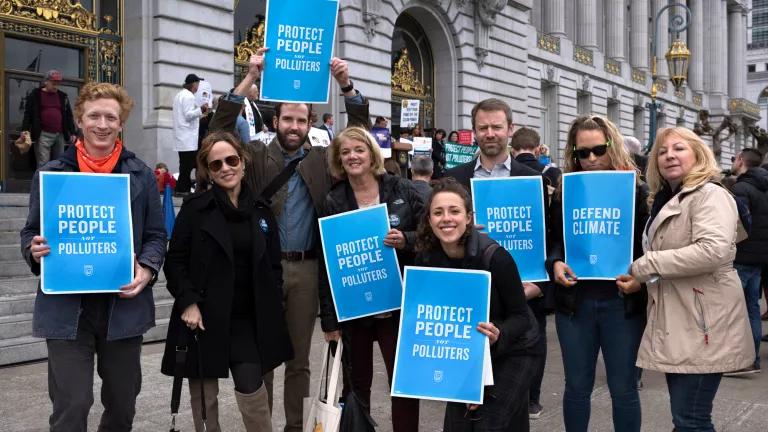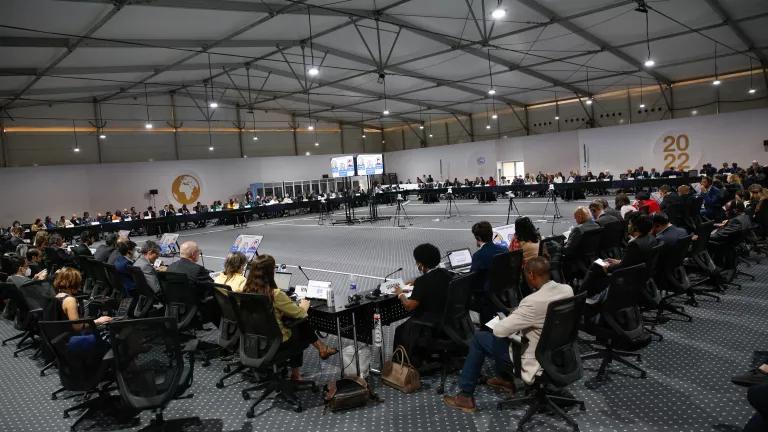COP25 Moves, Need for Climate Action in Chile Remains

Following nearly two weeks of massive social mobilizations and protests in Chile, President Piñera announced that Chile would no longer host the annual United Nations climate conference (COP25) in December or the Asia-Pacific Economic Cooperation Forum (APEC) in November. This decision will not prevent the global climate negotiations from advancing as they will now be held in Madrid and Chile retains the COP presidency. However, it is unfortunate that Latin America and Chile lose the opportunity to highlight the enormous challenges they face to confront climate change, as well as the progress made so far. It’s now crucial that the change of venue of the global climate summit does not prevent Chile from advancing with climate action at the national and local levels. It is in fact even more urgent in light of the country’s continuing social unrest.
In comments about the cancellation of COP25 and APEC, Chile’s Minister of Foreign Affairs explained the decision was made to allow the government to focus on driving forward a new social agenda and the reforms the country urgently needs. Indeed, Chile now faces a reckoning that it cannot ignore.
The protests that were initially sparked by a public transport fare increase reflected a broader range of concerns, from low pensions to low quality or inaccessible social services, to poor working conditions. But they also revealed (yet again) long simmering environmental issues that only serve to exacerbate the social inequalities in Chile:
- “Sacrifice zones,” or communities or neighborhoods that face inordinately high levels of pollution and lack adequate health services.
- The over-allocation of scarce (and retreating) water resources to large users and corporations, often at the expense of potable water access for rural communities and small farmers.
- An enduring reliance on the overexploitation of natural resources—from minerals to forests to rivers—that can pollute the air and water of neighboring communities, often Indigenous Peoples.
- The lack of adequate access to information and legal protection for environmental leaders, which is guaranteed by the Escazú Agreement that Chile has not signed
These are just a few examples to show that the inequality that pervades Chile—even as GDP has grown—is not only an economic issue.
In addition, Chile is a country that is highly vulnerable to climate change. Its impacts are also unevenly distributed and they act as multipliers of inequality. Low-income and marginalized communities are often the most exposed and least prepared for climate risks such as extreme weather conditions. Many rural communities in Chile are already bearing the brunt of a mega drought. In the country’s northern desert regions, unusually strong rainstorms have flooded critical buildings like hospitals and isolated entire towns. Even without hosting a COP in Santiago this December, Chile will need to advance a climate agenda locally as an integral part of addressing the inequities and pressing social demands these past two weeks have brought to the fore.
Inclusive climate solutions alleviate other problems as well and can be the building blocks of a more equitable society. Reducing climate change-causing pollution such as black carbon improves health. Green infrastructure solutions can decrease water scarcity. Building resilient infrastructure can secure critical health care services when disaster strikes. Sustainable agricultural practices reduce land degradation while also producing better yields. Protecting coastal and marine resources can shelter towns and economic sectors like fishing from storms, floods, and sea-level rise.
Over the past ten years, NRDC has worked in Chile with partners from civil society, the private sector, academia and the public sector to help advance clean energy and green finance solutions, protect the country’s free-flowing rivers, and address water scarcity. We believe that the country can be an example for other countries in Latin America and beyond. Indeed, the Chilean renewable energy revolution is already an example for countries working toward a clean energy transition. Over the past months, we have also seen the energy and commitment with which Chileans from across different sectors of society have worked to prepare a successful COP25 that among other things, would position science at the center of the debate, bring new attention to the ocean-climate nexus, and highlight the role of clean transportation solutions.
Now too, Chile can be an example for other countries. Citizens around the world—from Lebanon to Ecuador to the Czech Republic—are calling out for more just and equitable societies that work better for all citizen, not just the groups in power. Chile is now at an inflection point and has the opportunity to set out on a truly equitable and sustainable path. Chile will need to channel the energy of this movement to address the fundamental inequities of the current system and prioritize short- and long-term solutions that create a country where everyone can live and thrive in clean and equitable communities.





